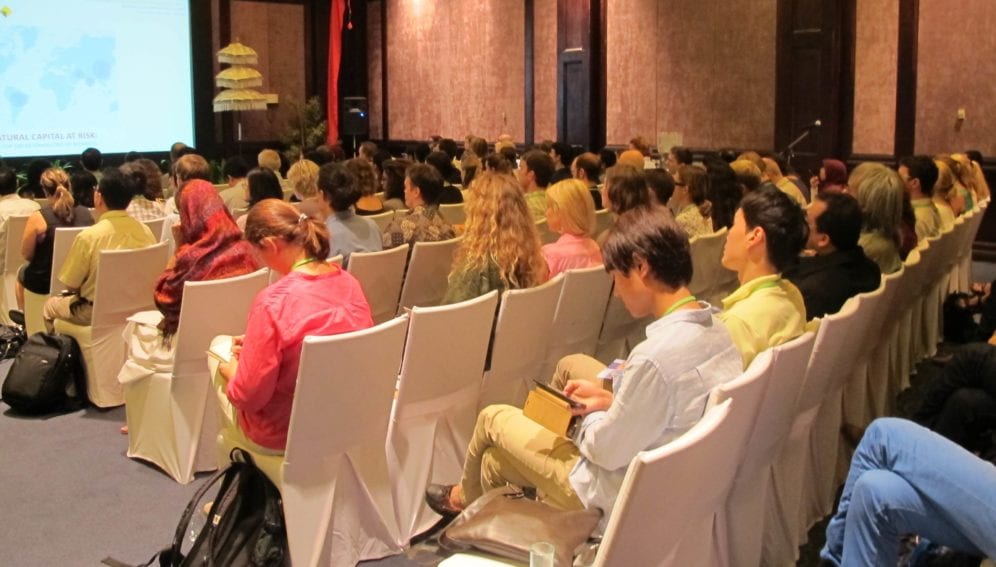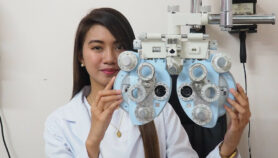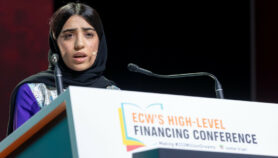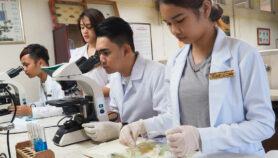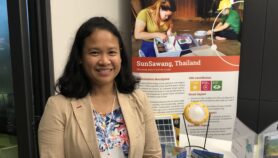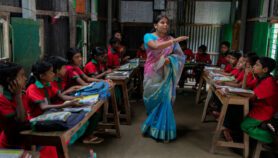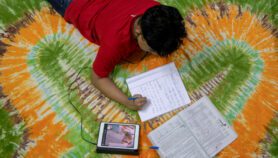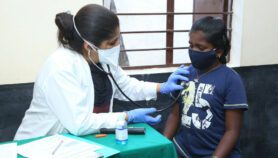By: Crispin Maslog
Send to a friend
The details you provide on this page will not be used to send unsolicited email, and will not be sold to a 3rd party. See privacy policy.
In South-East Asia and the Pacific, the Philippines has become the battleground between protagonists for and against genetically modified food.
But a string of setbacks suffered by scientists supporting research on genetically modified organisms, with no less than the Philippine Court of Appeals deciding to ban field trials of GM eggplant in the country, raises an important question: how much are scientists and science trusted?
Top Filipino scientists testified in court that field research on GM eggplants is safe. But the judge hearing the case thought that they failed to prove “beyond reasonable doubt” that this is the case. Pioneering Filipino plant breeder Emil Javier says: “Scientists can never say with certainty that any research is safe. But courts like to hear a yes or no.”
But what about the general public? Do they trust scientists and what they say and do? If there is a strong and clear public trust of science and scientists, it is possible that judges will react with a populist verdict playing to the gallery.
Trust in science high in West
In developed countries, such as Australia, the United Kingdom and the United States, numerous surveys show that science and scientists have high credibility. These countries also have higher adoption rates of scientific findings and technology.
In the US, “scientists are very highly rated compared with those from other professions: only members of the military and teachers are more likely to be viewed as contributing a lot to society’s well-being.” [1]
Another US poll by the Associated Press asked a more specific question: do you believe what scientists say about the environment and climate change. In all, 67 per cent said they did. [1]
In a UK survey, 80 per cent agreed that, “on the whole, science will make our lives easier” and 54 per cent thought that “the benefits of science are greater than any harmful effect”. [2] The same survey said 88 per cent thought that “scientists make a valuable contribution to society” and 82 per cent agreed they “want to make life better for the average person”.
There are no comparable surveys in the South-East Asia and Pacific that I am aware of. But a survey I was involved in that was carried out? in the Philippines decades ago showed that Filipino farmers and mass media had a positive view of the science and scientists of the International Rice Research Institute. I suspect that view has not changed much since then. [3]
It is interesting to note from a review of how scientists are viewed in Filipino films and biographies that there are still a lot of incorrect impressions about these people in “white lab coats”. [4]
Stereotypes of scientists
Graduate student Garry Montemayor analysed images of scientists in his thesis at the University of the Philippines Diliman.
According to Montemayor, Filipino films portray scientists either as “evil expert, mad intellectual, a helpless victim, hermit prodigy, foolish professor, well-rounded genius or a heroic creator”.
Similarly, the participants in his focus group discussions had images of scientists as “evil and mad, crazy and absent-minded, boring hermits, hardworking and disciplined, and inspiring heroes”.
It is interesting to note that of the 24 stereotypes of scientists in his study, 23 are way off target and only one is accurate — that of the scientist as “hard-working and disciplined”.
If this is true in other developing countries in the region, given the mostly negative impressions, it will take some time to correct misconceptions about scientists in the region and for the public to learn to trust them.
In recent years, however, we have noted how the public in South-East Asia and Pacific countries have gradually embraced scientists. The best example is weather forecasters. I still remember the time when people would rather believe the opposite of what the weather forecaster would say about the weather.
But with the coming of satellites and improvements in technology, weather forecasts have become more accurate, and people in the region now come running away from the danger zones when the forecaster predicts wind, rain and floods.
The terms global warming and climate change have now entered the vocabularies of the mass media and the average person in the region, thanks and no thanks to the series of weather-caused disasters, topped by Super Typhoons Haiyan and Bopha in the last two years, which were accurately predicted by weather forecasters.
Educating people in science
But more work still needs to be done to make science part of local culture. We want more journalists to simplify science and educate people about green energy, environmental conservation and the role of science in development.
We need schools to teach more science and elevate scientists in the hierarchy of trusted people in society. We need to make judges appreciate and understand how science works. We should put more scientists in government so that political decisions and public policy are evidence-based and reliable. Only then can we hope to raise public trust in science.
Crispin Maslog is a Manila-based consultant for the Asian Institute of Journalism and Communication. A former journalist, professor and environmental activist, he worked for the Press Foundation of Asia and the International Rice Research Institute.
This article has been produced by SciDev.Net’s South-East Asia & Pacific desk.
References
[1] Ros Donald Public trust scientists on climate change – new poll (4 April 2013, Responding to Climate Change)
[2] Ipsos MORI Social Research Institute Public attitudes to science 2011 (Ipsos MORI, May 2011)
[3] Crispin C. Maslog Public awareness and perceptions of IRRI (1992-93): a survey of IRRI’s external and internal publics (Unpublished material)
[4] Garry Montemayor Dissecting the genius behind the white lab coat: Constructing the images of Filipino scientists in films and biographies (University of the Philippines Diliman, 2013)


